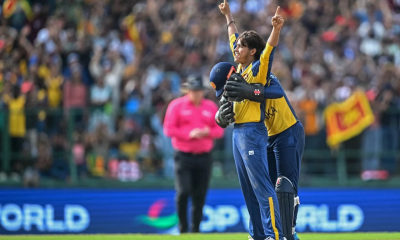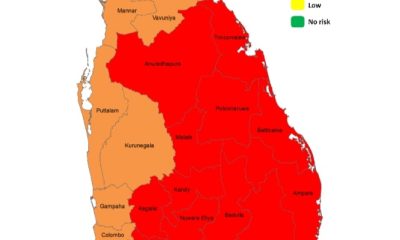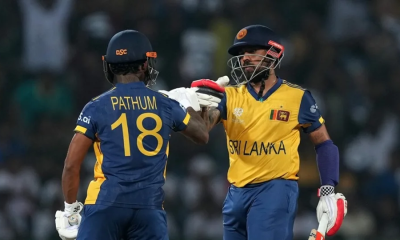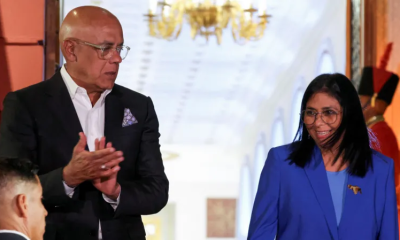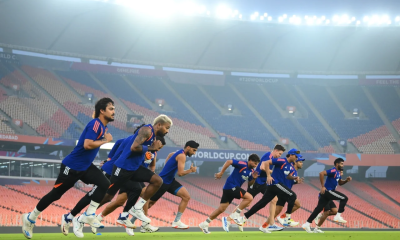News
SLMC calls for probe into agreement signed with bondholders, others ahead of presidential election

Sri Lanka Muslim Congress (SLMC) leader Rauf Hakeem, MP, demands to know why the Rajapaksa-Wickremesinghe government entered into an agreement with bondholders and commercial creditors just 48 hours before the presidential election.
MP Hakeem told The Island that he raised the issue at hand in Parliament last week when Parliament deliberated the Vote-on-Account. He drew the attention of Parliament to what he called a matter of critical importance related to Sri Lanka’s recent debt restructuring. The SLMC leader said: “While it is undeniable that reaching an agreement with bondholders and commercial creditors was crucial to steering our nation out of its economic crisis, troubling questions linger about the integrity of this process.
It is concerning that the agreement with bondholders was finalised merely two days before the Presidential elections, raising doubts about whether this, too, was exploited to serve the interests of a select few. We are reminded of the controversial $500 million bond repayment saga during the Rajapaksa administration. Similarly, the current restructuring raises the specter of insider trading—where investors, potentially armed with privileged information, acquired Sri Lankan bonds at deep discounts, only to negotiate settlements at face value, possibly in collusion with the administration.
This Parliament owes it to the people of Sri Lanka to demand transparency and accountability by initiating an independent inquiry to determine the purchase prices of these bonds, the extent of concessions offered, and whether public trust was compromised in favour of private gain. Another matter of profound national importance—the Domestic Debt Optimization (DDO) initiative, which I contend represents Sri Lanka’s third and most extensive bond scandal. This scheme, orchestrated under the stewardship of then-Finance Minister Ranil Wickremesinghe, mirrors the malfeasance of previous bond scams and inflicts severe economic injustice upon our working class.
In February 2015, the Central Bank of Sri Lanka (CBSL) was embroiled in a bond scandal involving the issuance of Rs. 1 billion in 30-year government bonds. The auction controversially accepted bids totaling Rs. 10 billion, significantly exceeding the initial offer, leading to an estimated loss of over $11 million for the nation. This incident, among others, has eroded public trust in our financial institutions.
The DDO was presented as a strategy to reduce the government’s liability to the public. However, a critical examination reveals a more sinister agenda. The Employees’ Provident Fund (EPF), the primary retirement savings of our private-sector employees, was compelled to exchange its Treasury bonds under the DDO programme
This maneuver effectively transferred substantial wealth from the EPF to a select group of beneficiaries, including: Licensed Primary Dealers, · Licensed Commercial Banks and· Non-Bank Financial Institutions
The exact magnitude of the windfall gains reaped by these entities remains undisclosed, raising serious concerns about transparency and accountability.
Calling for independent inquiry, MP Hakeem said: It is imperative that an independent investigation be conducted to: (i) Quantify the Wealth Transfer: Determine the total value siphoned from the working population’s retirement funds to the affluent few (ii) Assess Tax Revenue: Ascertain the amount of tax revenue the government accrued from these windfall profits.
Such an inquiry is essential to uphold justice and restore public confidence in our financial governance, the former Minister said.
Latest News
Advisory for Heavy Rain issued for the Central, Uva, Sabaragamuwa, Eastern and North-central provinces and in Galle and Matara districts
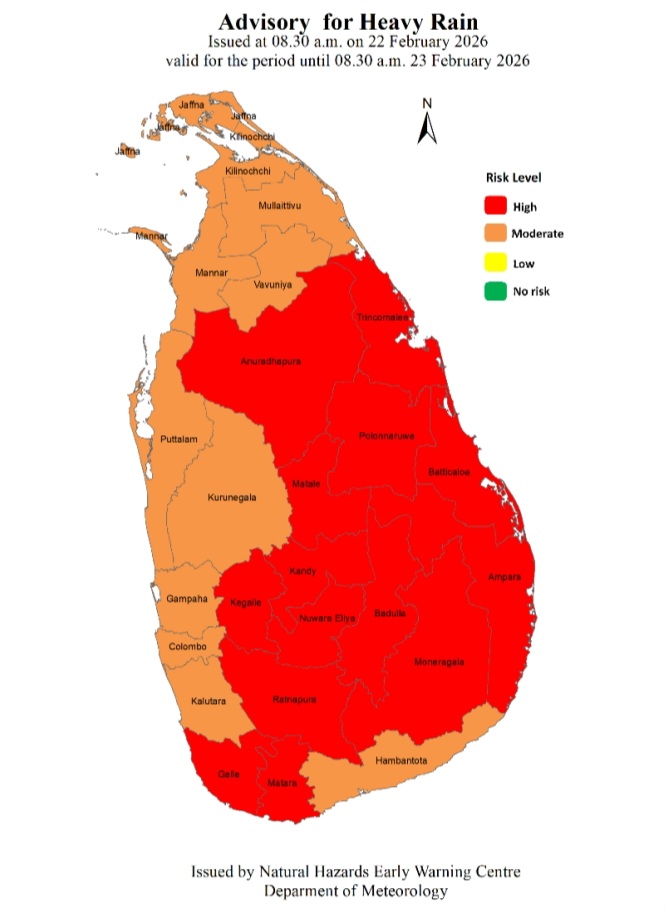
Advisory for Heavy Rain Issued by the Natural Hazards Early Warning Centre at 08.30 a.m. on 22 February 2026 valid for the period until 08.30 a.m. 23 February 2026
Due to the influence of the low level atmospheric disturbance in the vicinity of Sri Lanka, Heavy showers above 100 mm are likely at some places in Central, Uva, Sabaragamuwa, Eastern and North-central provinces and in Galle and Matara districts.
Therefore, general public is advised to take adequate precautions to minimize damages caused by heavy rain, strong winds and lightning during thundershowers
News
Matara Festival for the Arts’ inaugurated by the Prime Minister
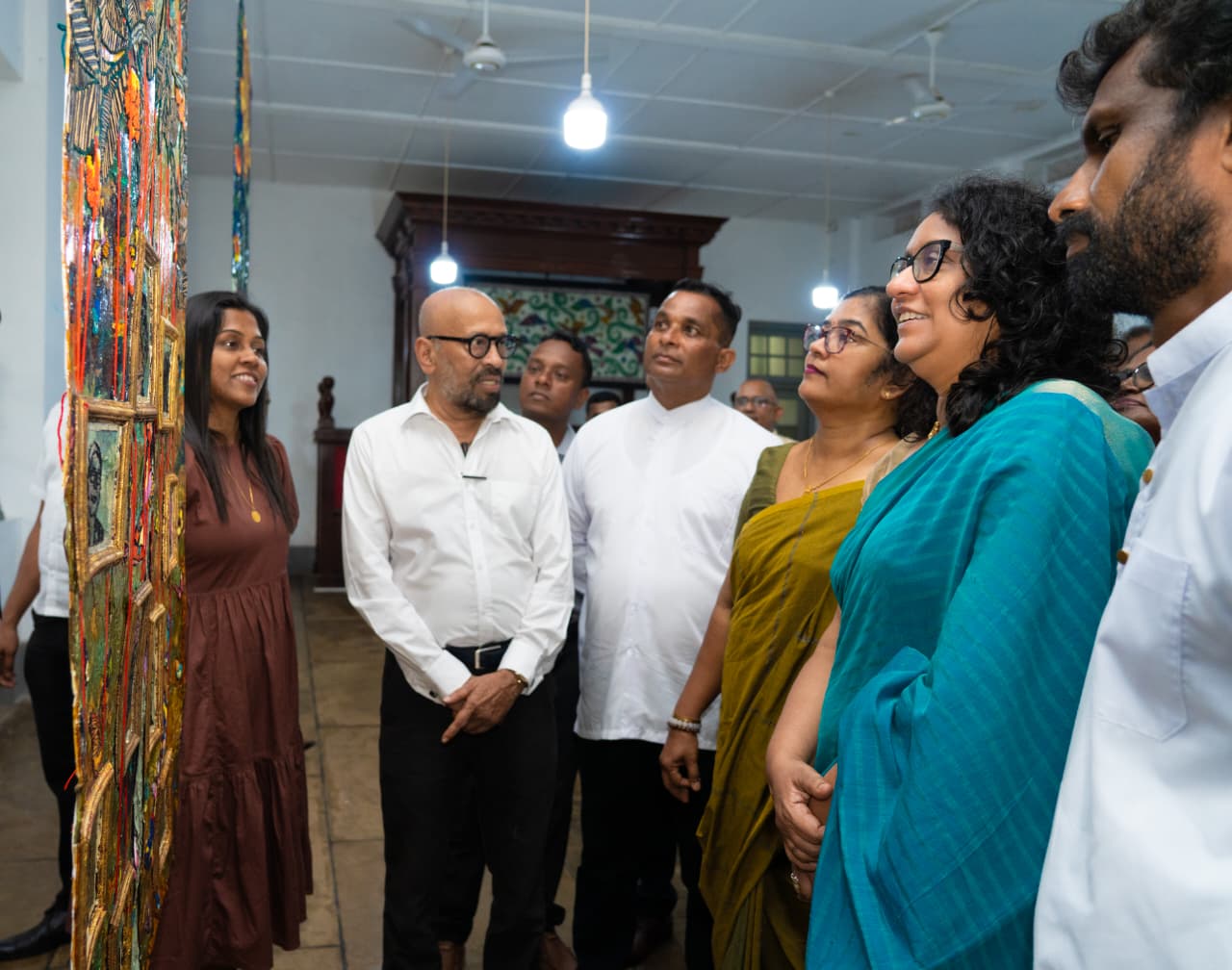
The inaugural ceremony of the Matara Festival for the Arts, featuring a wide range of creations by local and international artists, was held on February 19 at the Old High Court premises of the Matara Fort, under the patronage of Prime Minister Dr. Harini Amarasuriya.
The festival, centred around the Old High Court premises in Matara and the auditorium of the Matara District Secretariat, will be open to the public from 20 to 23 of February. The festival will be featured by visual art exhibitions, short film screenings, Kala Pola, and a series of workshops conducted by experts.
The inaugural event was attended by the Minister of Women and Child Affairs, Ms. Saroja Paulraj, along with artists, guests, and a large number of schoolchildren.
(Prime Minister’s Media Division)
News
Only single MP refuses salary as Parliament details pays and allowances
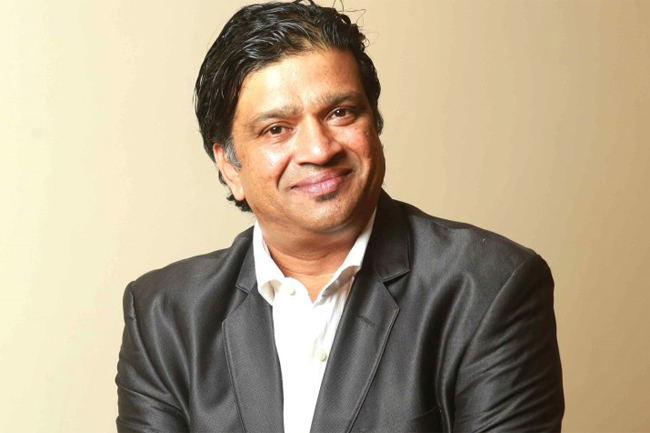
Only one Member of Parliament has chosen not to receive the salaries and allowances entitled to MPs, Prime Minister Dr. Harini Amarasuriya revealed in Parliament last Thursday, shedding light on the financial perks enjoyed by members of the Tenth Parliament.
Speaking on Thursday (Feb. 19) in response to a question from SJB Badulla District MP Chaminda Wijesiri, the Prime Minister outlined the full range of pay and allowances provided to parliamentarians.
According to Dr. Amarasuriya, MPs receive a monthly allowance of Rs. 54,285, an entertainment allowance of Rs. 1,000, and a driver’s allowance of Rs. 3,500—though MPs provided with a driver through the Ministry of Public Security and Parliamentary Affairs are not eligible for the driver’s allowance.
Additional benefits include a telephone allowance of Rs. 50,000, a transport allowance of Rs. 15,000, and an office allowance of Rs. 100,000. MPs are also paid a daily sitting allowance of Rs. 2,500 for attending parliamentary sessions, with an additional Rs. 2,500 per day for participation in parliamentary sittings and Rs. 2,500 per day as a committee allowance.
Committee meetings held on non-parliament sitting days also attract Rs. 2,500 per day.
Fuel allowances are provided based on the distance between an MP’s electoral district and Parliament. National List MPs are entitled to a monthly allocation equivalent to 419.76 litres of diesel at the market price on the first day of each month.
Despite the comprehensive benefits, only SJB Badulla District MP Nayana Wasalathilaka has opted not to draw a salary or allowances. Dr. Amarasuriya said that in accordance with a written notification submitted by MP Wasalathilaka on August 20, 2025, payments have been suspended since that date.
The Prime Minister also confirmed that she, along with the Speaker, Deputy Speaker, committee chairs, ministers, deputy ministers, the Opposition Leader, and senior opposition whips, have all informed the Secretary-General of Parliament in writing that they will not claim the fuel allowance.
Challenging the ruling party’s voluntary pledge to forgo salaries, MP Wijesiri pointed out that all MPs except Wasalathilaka continue to receive their salaries and allowances. “On one hand you speak about the people’s mandate, which is good. But the mandate also included people who said they would voluntarily serve in this Parliament without salaries. Today we have been able to prove, Hon. Speaker, that except for one SJB MP, the other 224 Members are drawing parliamentary salaries,” he said.
The Prime Minister responded by defending the political culture and practice of allocating portions of MPs’ salaries to party funds. Referring to previous practices by the JVP and NPP, she said: “It is no secret to the country that the JVP has for a long time not personally taken MPs’ salaries or any allowances. I think the entire country knows that these go to a party fund. That is not new, nor is it something special to mention. The NPP operates in the same way. That too is not new; it is the culture of our political movement.”
When MP Wijesiri posed a supplementary question asking whether diverting salaries to party funds was an indirect method of taking care of MPs, Dr. Amarasuriya said: “There is no issue there. No question was raised; the Member made a statement. What we have seen throughout this week is an inability to understand our political culture and practice, and a clash with decisions taken by political movements that misused public funds. What is coming out is a certain mindset. That is why there is such an effort to find fault with the 159. None of these facts are new to people. He did not ask a question, so I have nothing to answer.”
The disclosures come days after the Government moved to abolish the parliamentary pension, a measure that has sparked renewed debate over MP compensation and the transparency of funds allocation.
-

 Features18 hours ago
Features18 hours agoWhy does the state threaten Its people with yet another anti-terror law?
-

 Business7 days ago
Business7 days agoMinistry of Brands to launch Sri Lanka’s first off-price retail destination
-

 Features18 hours ago
Features18 hours agoVictor Melder turns 90: Railwayman and bibliophile extraordinary
-

 Features18 hours ago
Features18 hours agoReconciliation, Mood of the Nation and the NPP Government
-

 Latest News2 days ago
Latest News2 days agoNew Zealand meet familiar opponents Pakistan at spin-friendly Premadasa
-

 Latest News2 days ago
Latest News2 days agoTariffs ruling is major blow to Trump’s second-term agenda
-

 Latest News2 days ago
Latest News2 days agoECB push back at Pakistan ‘shadow-ban’ reports ahead of Hundred auction
-

 Features18 hours ago
Features18 hours agoVictor, the Friend of the Foreign Press


